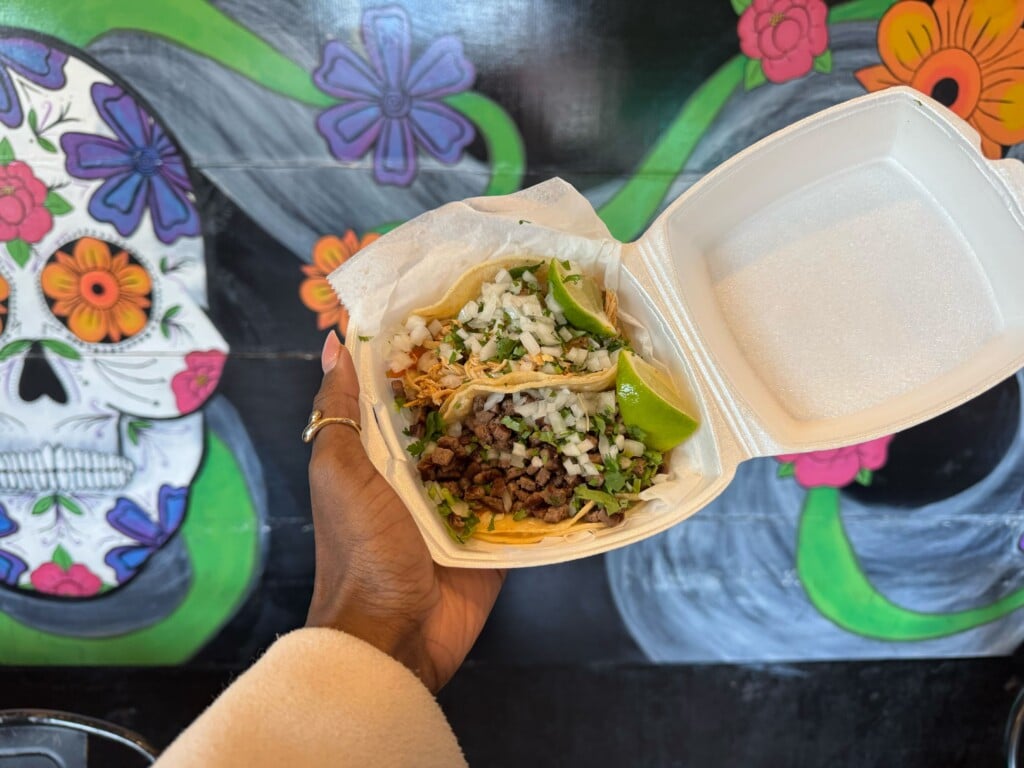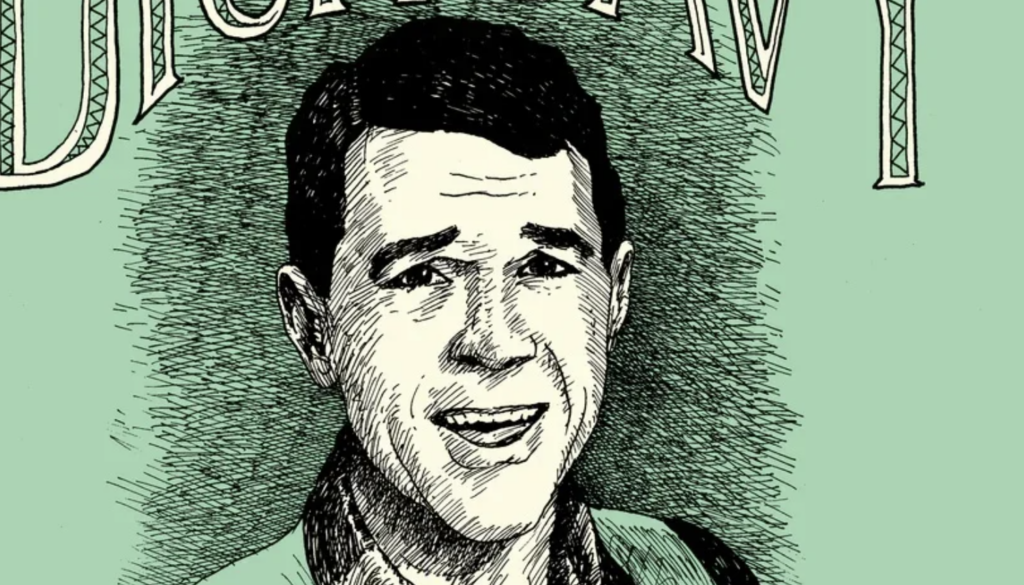With Google putting Fiber in Austin, Kansas City Startup Village confronts an uncertain future


Oh, it was a shit show,” Alexa Nguyen will say later.
Nguyen, a 22-year-old entrepreneur with a 3-D home-printing startup called Handprint, is recalling a recent tense meeting of Kansas City Startup Village.
The village has been under way only a short time. It started in October 2012, when the startups Local Ruckus and FormZapper moved into a building at 4454 State Line to be among the first hooked up with Google Fiber. Others followed, filling homes along the border between Kansas City, Kansas’ Hanover Heights and Spring Valley neighborhoods and the Missouri side’s West Plaza. About 20 startup founders, business owners and entrepreneurs are in the village now.
And at this April 10 meeting, they’re not happy.
It’s just an hour after Kauffman Labs’ weekly showcase of startups, 1 Million Cups, has finished celebrating its first anniversary with bagels, coffee and a stream of success stories, when 30 members of the village sit down to discuss their future. The day before, Google said it would offer its ultrafast gigabyte Fiber to Austin, Texas. (A week later, the Internet goliath will announce another expansion city: Provo, Utah.) These developments have left the villagers feeling uneasy and in a less-than-celebratory mood.
“We want to talk openly about ideas and how we can re-energize the movement, especially with Austin getting Fiber,” says Matthew Marcus, CTO of Local Ruckus, who’s trying to build a better online events calendar. Marcus was among the first villagers, but he’s not the village’s leader. The village has no hierarchy or guiding board, and inhabitants call themselves “co-leaders.”
Marcus, 40, admits that Startup Village is in the midst of an identity crisis. In the last couple of months, he says, the village has become the de facto point organization for all startups considering a move to Kansas City.
“The problem I see is that we’re muddling lines here,” Marcus says. “This started as a village, an entity, an area. And now we’re talking about Kansas City as a whole, which I love. But do we want the Kansas City Startup Village to continue to be that entry point for the whole of Kansas City?”
Marcus shifts the discussion to sponsorships. Is it time to involve major corporations — Sprint, Garmin, Hallmark and others — to grow the village?
“Put your money where your mouth is,” Marcus says. “You guys love what we’re doing; get involved. It feels like that is a missing component.”
Ray Barreth disagrees.
“Don’t desert your organic roots,” says Barreth, whose son, Ben Barreth, owns the Hacker House communal work and living space in the village. The older Barreth, who has a decade or two on most in the room, has spent the meeting carving out a role as a quirky elder statesman and business adviser who is quick to dole out kicks in the pants with his crusty voice. “This whole concept of a village is a beautiful thing.”
The concern shouldn’t be Austin getting Fiber but maintaining the communal atmosphere here, Beth Sarver argues.
“Google Fiber is not the wholeness of what we have here,” she says as about a dozen people nod in agreement. “It’s a huge piece, but it’s like a cornerstone or something. It’s not the foundation. The foundation is our human connectedness and great ideas.”
The hourlong meeting winds down with no plan or decision on how to refocus the group’s efforts. Cross talk and chitchat pollute the room. Sarver raises her voice, likening Startup Village’s moment adrift to her experience with the local artistic community.
“One of the biggest problems we’ve had in growing that epic artists community is a fear of systems,” she says. “Our whole world is full of systems. So we can have systems and still be organic. I propose that we build a strategic visioning event ASAP and figure out, ‘What is this vision, exactly?’ “
Petite one- and two-bedroom bungalow homes line narrow, potholed streets in Kansas City’s Startup Village, in the area of State Line Road and 45th Street. The houses, most with full-size ground floors and modest second stories, are bunched together. Antique shops dot the neighborhood.
[page]
The quaint, blue building at 4454 State Line could easily be another storefront of forgotten treasures. Marcus owns the building, and he’d planned to make it just that. But the basement became the headquarters for his startup. Then, in November 2012, Leap2, maker of a mobile-app search engine, moved into the house’s ground floor. Barreth’s Hacker House opened six doors north in November. A half-block south, business incubator Pipeline, eye-recognition-application company EyeVerify and two other startups moved into the building at 1911 West 45th Street.
“Next thing you know, you have a village,” Marcus says.
Local Ruckus now shares the basement work space with FormZapper, an online paperwork depository. It was joined at the same time by Rivet Creative, a design, marketing and advertising firm. They came to be part of the first nonresidential space connected to Google Fiber, which went live last November.
Local Ruckus founder Adam Arredondo, 28, says the village’s growth has been remarkably coincidental. “Three startup properties came to be in the first neighborhood in the world to get Google Fiber, within half a block of each other with no planning,” he says.
For the village to grow, Marcus says, it’s time to court local corporations to buy houses, paint them in their colors and open innovation centers. He envisions a Sprint home, a Garmin home, a Hallmark home.
“If we could get them to have a home down here,” Marcus says, “I think that would be so powerful.”
Ben Barreth, 34, is stripping beds and replacing the sheets inside his Hacker House on a mid-April Monday.
In November, Barreth bought the gray two-story house at 4428 State Line, not to live in but to offer to startups for three months of rent-free housing and access to Google Fiber.
“People usually ask me why I’m doing it,” he says. “I really believe in Kansas City. I believe in the startup scene.”
Barreth, with a curly blond widow’s peak and dark-rimmed glasses, throws a pile of dirty sheets into the passenger seat of his red Toyota Echo and moves on to the next task, attaching a door to the house’s fuse box. He opens the outside basement door, revealing a crumbling set of 2-foot-wide stairs, and descends into the musty, damp cellar.
His original project, Homes for Hackers, was meant to enlist homeowners with Google Fiber who would be willing to let startup founders live with them rent-free while working on their companies. But getting potential volunteer homeowners hooked up to Fiber would take a year. Barreth didn’t want to wait. Last September, he joked with his wife about buying a house in the first neighborhood to get Fiber.
“I remember telling her, ‘Hey, honey, what if we just bought a house?’ ” Barreth says. “We both laughed. It was a stupid idea. That was Wednesday morning. Saturday, we found this house. Sunday, we put an offer in on it. We closed on Halloween.”
Barreth’s Hacker House functions mostly as a crash pad for people interested in trying Fiber and peeping Kansas City’s startup scene. One of the bedrooms is available for rent on airbnb.com for $49 a night, while others are used by visitors who arrange stays through Barreth. The rent covers about half of the home’s mortgage and utilities, which total $850 a month.
Barreth says the village is in a state of constant change. He says five new startups are scheduled to move into Hacker House May 31. Being a part of the Startup Village has made him comfortable with the ebbs and flows of startups looking to come to town, although he was a little worried a month ago.
[page]
“We reached one of those ebb moments,” he says. “I thought, OK, interest is dying off.”
But is he concerned about the village’s viability or a threat from Austin?
“The short answer is no,” Barreth says. “I’m not worried about that. My house is full starting May 31 for three months.”
After those three months, an Arizona-based company is slated to move into Hacker House.
“People [are] willing to move to Kansas City from way out of town,” he says. “This guy is from Tucson, Arizona.”
But what the neighborhood really needs is a coffee shop, Barreth says. The nearby Eddie Delahunt’s Café (which opens daily at 7 a.m. and closes between 2 and 3 p.m.) is for sale, and he says the village residents are hoping that someone will buy it and expand its hours. “We need a 24-hour place where people can meet and hang out,” Barreth says. “We need, like, a local version of a Starbucks.”
Barreth is also hopeful that people will buy more houses and allow entrepreneurs to stay in them. He knows of a pair of startup founders who recently closed on a house down the street. And in the past few weeks, he has shown other potential homeowners around the neighborhood, including Tam Nguyen, of San Jose.
Nguyen is wrapping up a weeklong stay at the house. He says he came to try Fiber, but the community has impressed him, and he’s considering buying a house in the village and renting it to other startups.
“The vibe here is cool, man,” he says. “Everybody is like family.”
Barreth hopes to see the family grow: “I’m just doing this to help put Kansas City on the map. In a year, the goal is 50 startups.”
A big whiteboard hangs on Hacker House’s living-room wall and serves as a makeshift guestbook, covered with visitors’ Twitter handles. In an adjoining dining room, desks and chairs line the walls beneath another large whiteboard, which displays a schedule of upcoming visitors. Two bedrooms — one with bunk beds, the other with a solo bed for the Airbnb renter — are on the first floor.
Phil Jaycox, 23, moved from St. Louis to Hacker House in January and is the only full-time resident. It’s midday, and he’s barefoot, wearing sweatpants and a T-shirt, and clacking away on a Google Chromebook while sitting on a green, L-shaped couch in the living room.
Jaycox is building a platform for his social courier business, Dealivr, which allows potential delivery drivers to sign up and accept jobs from other users. He says the idea struck him in college when his drunk friends would call and ask him to deliver Taco Bell. Thirty potential local delivery drivers are awaiting Dealivr’s launch.
“Even Wal-Mart is looking into delivery,” Jaycox says. “That really validates my idea.”
Jaycox likes Startup Village’s homey atmosphere, but he admits there have been struggles in the past six months: the lack of residents at Hacker House, few companies moving into the neighborhood, and the village’s lack of identity. He says the villagers are making an effort to avoid the chaotic meeting atmosphere that occurred at the previous meeting. Now they’ll discuss village business exclusively at meetings biweekly. During the alternating weeks, they’ll focus on the citywide startup community.
[page]
“Nobody knew what direction we were going in,” Jaycox says. “Some people thought we were for Kansas City as a whole. Other people thought we were for the village. [Now] there’s a focus. They’re going to make it so it’s not a free-form meeting.”
On a cloudless, 60-degree April day, Jaycox ambles through the village on his daily “Steve Jobs walks,” named after the Apple founder’s workday strolls. Backyards are a lush emerald from recent rain. Tall trees intermingle. The chirping of birds never ceases. He points to a black-and-amber-striped cat. “That’s a new mommy cat,” he says.
Jaycox, who owns a car, says he has spent about $50 on gas since moving here. He walks everywhere, especially to the QuikTrip on Westport Road to indulge his Dr Pepper habit.
“The way I’ve learned everything about Kansas City is that I walk about 80 percent of the time,” says Jaycox, who goes to the Plaza, where the art inspires his work on Dealiver.
“Sculptures are cool because people can take a huge blob and turn it into a masterpiece,” Jaycox says. “If you think about it, sculptures and statues — in a way, they hacked something together. They turned nothing, an amorphous block, into a Poseidon shooting water.”
Jaycox’s time in the house is coming to an end; he’ll move out sometime in May before the new Hacker House crop moves in at the end of the month. He plans to stay in Kansas City, crashing on floors of other villagers. Until then, he has only one complaint about the house: a lack of toilet paper.
“People use a lot of toilet paper when they come to visit,” he says.
Kansas City Startup Village’s latest residents moved into the Feld Fiberhouse April 17. Boulder, Colorado, investor and startup evangelist Brad Feld bought the Cambridge Street house in early February and took applications, awarding one startup free rent and Fiber for a year. Handprint, a software company trying to build easy-to-use 3-D printers, won.
Handprint’s four founders are the youngest members of the village. Mike Demarais, 20, is the first alumnus of Hacker House. After his three-month stint, he returned to suburban Boston and started Handprint with Alexa Nguyen; Derek Caneja, 19; and Jack Franzen, 19.
The Feld house sits catercornered across a gravelly alley from the Hacker House, and a few doors away from Local Ruckus’ offices. It features a new wood deck on its side, a front porch and a long backyard with two meat smokers. But the real draw for the Handprint team isn’t the house’s Fiber connection.
“We didn’t move here because of Google Fiber,” Demarais says. “We moved here because of the community. Back in Boston, there’s a huge startup scene. In the Valley, there’s a huge startup scene. But it’s really hard to have real conversations with people, to get advice, to get feedback about stuff.”
Alexa Nguyen says asking for help in other startup markets can also cost equity.
“It’s, like, you need help with this problem, give me 5 percent,” she says.
That hasn’t been the case in Kansas City. Google lent the Handprint team laptops for a Big Kansas City conference presentation. Sprint lent them a couple of 4G hot spots when their previous apartment didn’t have Internet access. And another villager offered to build shelves for them.
“We can’t believe how generous everybody is and how hospitable and supportive,” Nguyen says.
The quartet doesn’t view Austin, home of the South by Southwest festival, as a threat to Kansas City’s startup scene.
“Some people around here are like, ‘Oh, man, we got to step up our game,’ ” Demarais says. “Here’s the thing: Austin already has an established startup community. And this isn’t going to make anybody go to Austin who wasn’t already going to go to Austin.”
[page]
The Handprint team agrees that it’s an awkward time for the village. What should the collective’s next move be? Demarais argues that startup-friendly people with ties to the village should be buying area homes.
“If they don’t pick up properties, then the longevity of this project is at risk,” Demarais says. “The reason we stayed in this neighborhood is that without a dense community and without more people planting the flag in the ground, saying, ‘This is where we are, come here,’ the scene can never fully emerge and develop.”
In late April, Hallmark employees Todd Navrat and Rob Bensman announce that they have bought the blue house on the corner lot at West 45th Street and Cambridge.
Navrat and Bensman put their own money into buying the house for a project they’re calling Cambridge Fiber. The newest members of the village won’t divulge the exact use of the house but have made it clear that their philosophy fits the village’s mission.
“My personal ethos is, I want to give back to people who want to help themselves, people who need a little bit of help or a little bit of mentoring or a bit of space,” Bensman says. “That’s exactly what’s happening in the Startup Village. These people are taking enormous personal, professional and financial risk. They’re working 20 hours a day. They’re doing so much.”
Bensman, Hallmark’s vice president of strategic alliances, stresses that his employer is playing no role in buying the house. He and Navrat, Hallmark’s assistant general counsel, aren’t sure what they’re going to do with the former rental property.
“We’re building out a plan,” Bensman says, “and we’re starting by doing what’s right for the community.”
Local Ruckus’ Arredondo sees the Cambridge Fiber house as a vote of confidence for the village’s future.
“They’re Kansas City guys, they believe in what’s happening here, and they were in a position to take a risk with all of us and drive this thing forward,” Arredondo says.
In a year, he’d like to see the village double in size. “What we want to get to the point of is far less intentional and far more sustainable,” he says. “You’ll just feel it when we get there. We know we’re not there yet.”




